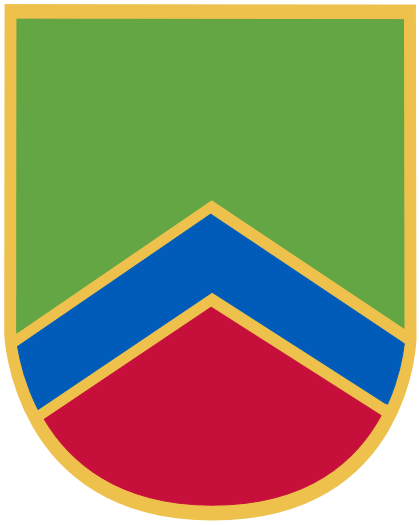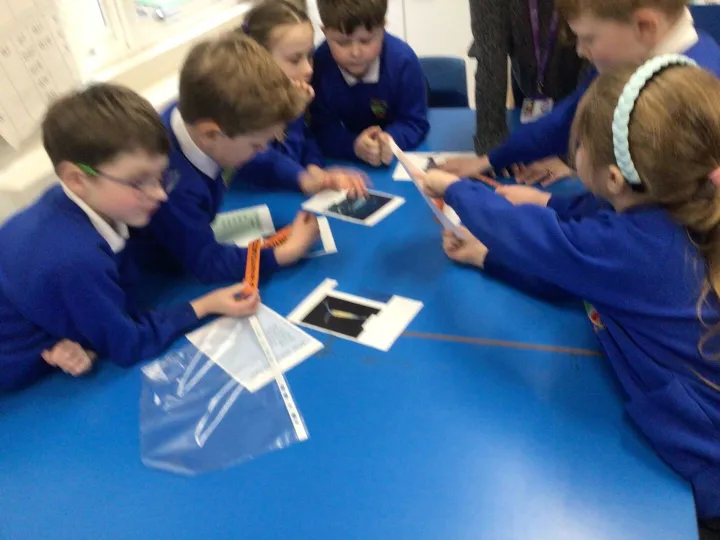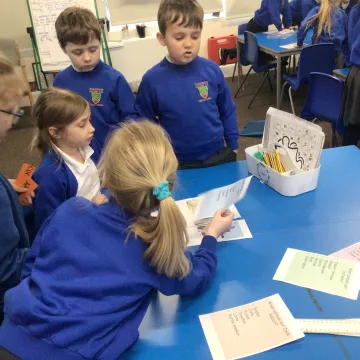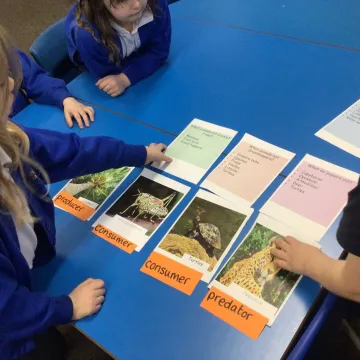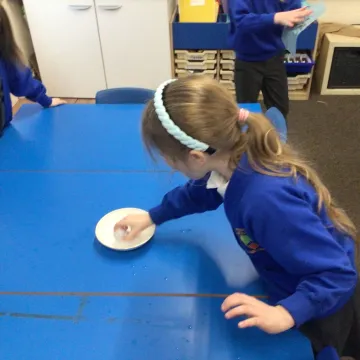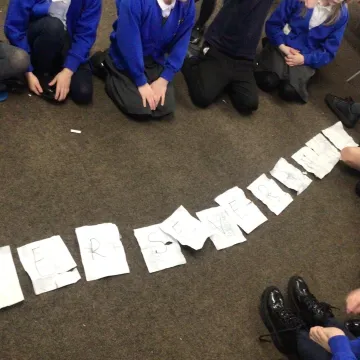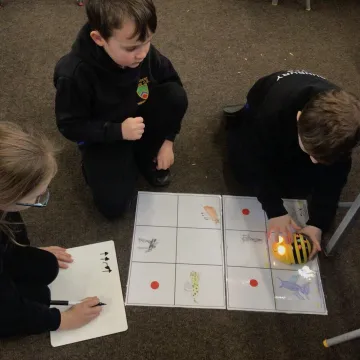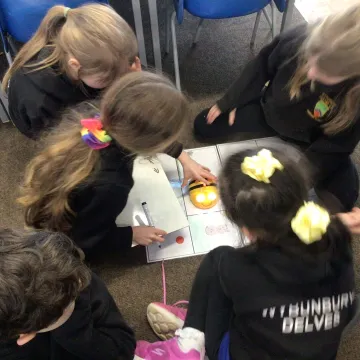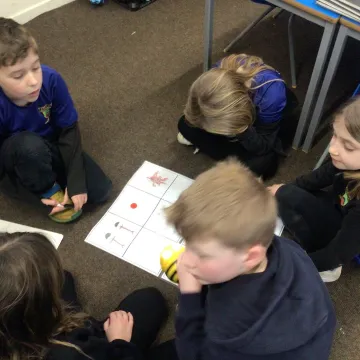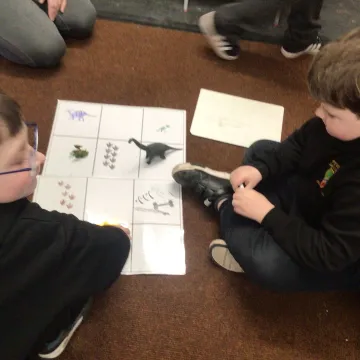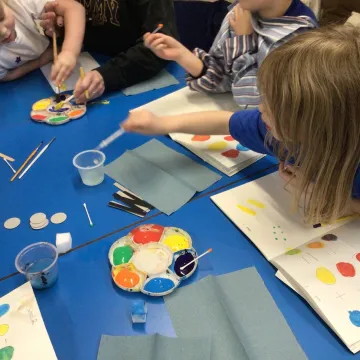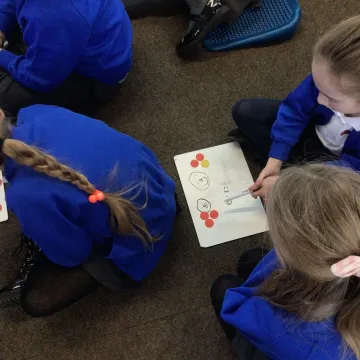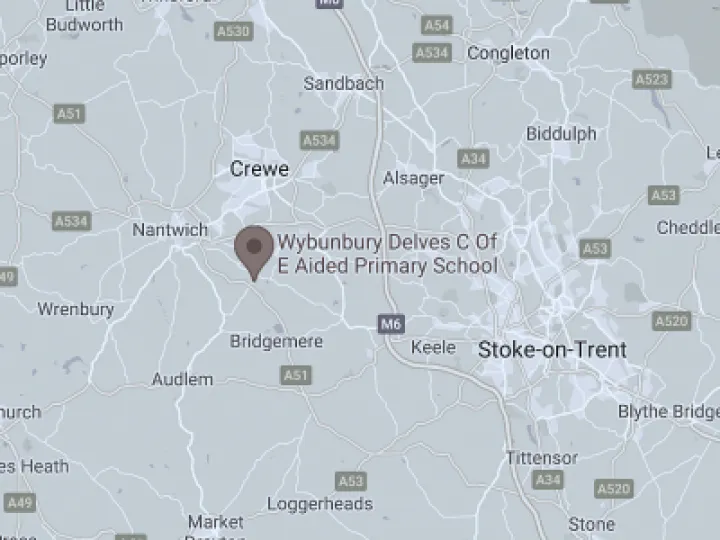Happy half term Year Two- 14.2.25
Our final week of term saw us being instruction writers, food chain explorers and creative artists.
In English this week, you wrote your own instructions for creating a Bog Baby habitat! Each day, you carefully planned and wrote different sections of your instructions, thinking about how they were structured in our example text. You included an introduction paragraph, a list of materials, step-by-step instructions on how to build the habitat, and finally, some top tips to help care for the Bog Baby. You worked incredibly hard to make sure your instructions included imperative verbs, conjunctions, and words with the suffixes -ful and -ly. Your writing was so impressive that I wanted to create all of your wonderful habitats myself! Well done, superstars!
In maths this week, you completed your first unit on multiplication and division! You explored the multiplication (X) symbol, understanding its meaning and how to use it in number sentences. You learned that the first number represents the number of groups, while the second number tells us how many are in each group. Later in the week, you moved on to division, discovering the divide (÷) symbol and what it represents. You found out that division can be solved through grouping or sharing, and you used concrete resources like counters to help you work out your division problems. You have all worked so hard on this unit--well done!
This week in science, you completed your final lesson on food chains and showcased all of your brilliant learning from this unit! To begin, you explored the key parts of a food chain, learning that every food chain starts with a producer (usually a plant) and ends with a predator (an animal at the top of the chain). You discovered that consumers are the animals in the middle of the chain that eat plants or other animals. Using this knowledge, you researched food chains from a range of different habitats, from the ocean to the rainforest, and carefully sequenced them in the correct order. You were especially fascinated by the food chains in our local microhabitats, spotting how mini-beasts like worms, ladybirds, and spiders fit into the ecosystem around our school!On Friday, you completed your end-of-unit assessment, where you reflected on everything you had learned about living things and their habitats. You confidently answered questions about food chains, different types of habitats, adaptations, and the survival of animals in their environments. To finish, you tackled our big question: "How can animals survive in their habitat?"--and your answers were truly impressive! You used all of your scientific knowledge to explain how animals rely on their surroundings for food, shelter, and protection. Your enthusiasm for this topic has been amazing, and you have worked so hard to develop your understanding of living things. Well done, superstars!
This week in RE, you concluded your unit by reflecting on the different Bible stories you've explored, such as Jesus healing the blind man, healing the ten lepers, and welcoming the children. You then focused on the story of The Healing of the Paralysed Man, answering thoughtful questions about how the man felt before and after being healed, how his friends showed faith and determination, and how the people in the crowded house reacted to witnessing Jesus' incredible power. Finally, you reflected on what all these stories reveal about Jesus, writing beautifully about how they show that He welcomes everyone into the Kingdom of God, that He is a friend to all, and that His love and kindness are endless. Your deep thinking and insightful answers really shone through--well done!
In your courageous advocacy work this week, you explored what it means to be a leader of perseverance. To begin, you were given an exciting challenge--to melt and break open a block of ice to reveal a hidden code. Inside each piece of ice was a small piece of paper wrapped in tinfoil, and your task was to free it using different methods. Once all the ice had melted, you carefully peeled back the tinfoil to uncover individual letters. After working together and rearranging the letters, you eventually discovered that they spelled out the word "perseverance." This led to a thoughtful discussion about its meaning and the importance of never giving up, even when something feels difficult. You also reflected on your own perseverance, realising that throughout the challenge, you demonstrated determination by continuing to try different approaches until you succeeded. It was a fantastic lesson in resilience, and you all showed great teamwork and perseverance--well done!
In Art this week, you continued your exploration of expressive painting by experimenting with a variety of tools to create different textures and marks. Instead of using traditional paintbrushes alone, you worked with cotton buds, cardboard circles, thin and thick paintbrushes, and glue spreaders to see how each tool could produce unique effects. As you painted, you carefully observed the different marks and textures each tool created, thinking about how they could be used to add depth and expression to your artwork. It was wonderful to see you embracing creativity and experimenting with new techniques to develop your painting skills!
In Computing this week, you reached the exciting conclusion of your Bee-Bot unit by finally using the Bee-Bots on the mats you had created! Working in your groups, you carefully planned and inputted different algorithms to navigate your Bee-Bot to specific locations on your mat. This task was both fun and challenging, as sometimes your Bee-Bot didn't go exactly where you wanted it to. When this happened, you had to think critically about the code you had inputted, identify any mistakes, and correct them--a process known as debugging. It was fantastic to see you all developing your problem-solving skills and perseverance while working as a team. Well done, Year Two!
In History this week, you came to the end of your unit on farming by bringing together all of your knowledge and understanding. You reflected on everything you had learned and revisited your mind map of knowledge to see how much you had discovered. Using this, you answered your big history question: "How has farming changed over time, and how does it impact us today?" You thought carefully about the differences between past and present farming, noting that in the past, most tools were hand tools, meaning more workers were needed, and food production was much slower. Now, farming is largely done using machines, such as combine harvesters, making the process much more efficient. You also compared farm sizes, learning that in the past, farms were often larger and mixed, growing crops and rearing animals together. Today, farms are generally smaller and tend to focus on one type of farming, such as dairy farming. This was a great way to wrap up your learning, and you demonstrated a fantastic understanding of how farming has evolved over time!
I hope you have lots of fun on your half term break and you make lots of memories with your families. Just remember there is no homework being sent out this half term. I just want you to enjoy your time with your families, watching movies, walking in the fresh air and visiting the park. Have the best time and I will see you back in school next week!
Miss Haynes
Quick Links
Contact Us
office@wybunburydelves.co.uk
01270 841302
Wybunbury Delves
Bridge Street
Wybunbury
Nantwich
CW5 7NE
